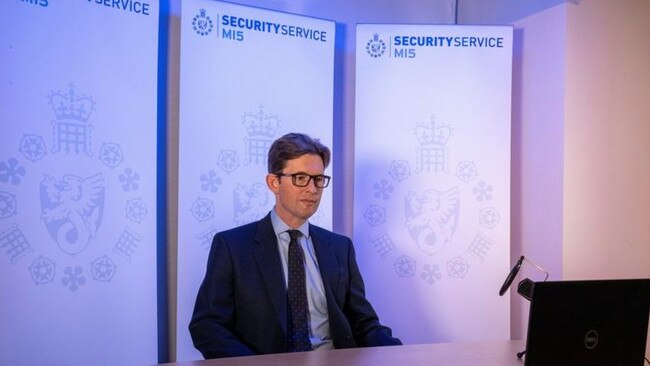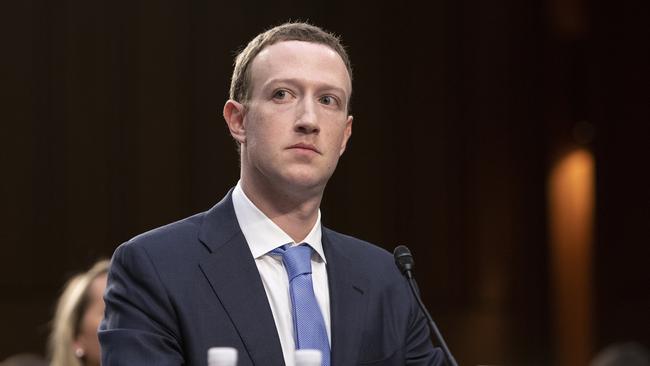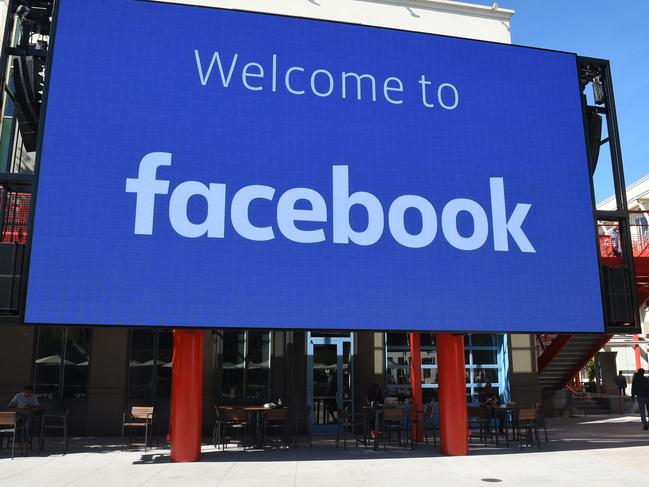MI5 Counter terror chief appeals to Facebook to not block their work
Facebook was handing terrorists a “free pass” with its encryption plans to affect Five Eyes intelligence services’ ability to disrupt terror plots.
World
Don't miss out on the headlines from World. Followed categories will be added to My News.
Facebook and its Silicon Valley executives were handing terrorists a “free pass” with encryption plans to affect Five Eyes intelligence services’ ability to disrupt their plots, UK’s MI5 chief has warned.
The tech giant is moving to end-to-end encryption of their services to ostensibly give users more privacy in their messaging, contacts and posts.
But MI5’s boss Ken McCallum said the plans by chief executive Mark Zuckerberg would enable terrorists everywhere to plot attacks without being visible to security services.
Mr McCallum said no-one was advocating a surveillance state nor a “camera in everyone’s living room” but there were occasions spies needed to get access to message content exchanged between dangerous suspects.
Safeguards already exist, including in the UK, Australia and the US, where should a threat be uncovered, warrants have to be sought from the minister or a judicial figure to track evidence through social media, of a threat being hatched or extremists calls for martyrdom.

But Mr McCallum said decisions taken by executives in Silicon Valley were now having a direct effect on the ability of the security services to disrupt such activities of terrorists or by child sex abuse rings.
“It is the case, especially around default encryption, that decisions taken in California boardrooms are every bit as relevant to our ability to do our jobs as decisions taken in Afghanistan or Syria,” he told Radio Times in London yesterday.
He added: “If you have end-to-end default encryption with absolutely no means of unwrapping that encryption, you are in effect giving those rare people – terrorists or people who are organising child sexual abuse online, some of the worst people in our society – a free pass where they know that nobody can see into what they are doing in those private living rooms.”
“This is an unsolved problem, which needs proper attention. We are not in any way seeking some form of surveillance state.

“What we do need is that on those rare occasions, where there is a concern of very, very substantial proportions, that when a secretary of state and the judge has agreed that access to that information is necessary and proportionate, we do need the companies to have built a means for us to work in partnership with them, in that rare case, to access the content of those communications.”
Last year Mr McCallum’s Australian counterpart ASIO’s Mike Burgess also vented frustration at proponents wanting to operate outside “social norms”.
“As a society, whether we know it or not, we’ve accepted the fact that the police or ASIO can get a warrant to bug someone’s car or someone’s house,” Mr Burgess said referring to encryption technology.

“Why should cyberspace be any different? Yet every time we have these conversations with the private sector companies, they kind of push back and say, ‘no, we’re not so sure about that’.”
Both ASIO and the AFP have been obfuscated by the tech giants even when they get warrants against serious suspects, to get access in any timely way. Then the Home Affairs Minister Peter Dutton last year railed against Facebook which he accused of being “morally bankrupt” for allowing an increase in reported child exploitation cases as Mr Zuckerberg specifically pushed for end-to-end encryption.


